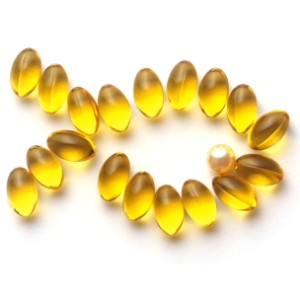
Did you know that your brain is 60% fat? And that DHA, an Omega-3 fatty acid predominantly found in fish, is one of the most abundant types of fat in this crucial organ?
Without this essential fatty acid, human life is hardly possible. DHA is abundant in neural tissues, important in terms of cognitive and visual function, and forms an integral part of the membranes of all the body's cells - including the cells of the brain.
If you're still not eating fish at least two times a week, read on. This article might convince you to stock up on the tuna and book that long overdue fishing trip.
Fatty acids explained
Essential fatty acids (EFAs) are classified into two groups: the Omega-3 fatty acids and the Omega-6 fatty acids. These fats all fall into the category of long-chain polyunsaturated fatty acids, or PUFAs (vs. saturated and monounsaturated fatty acids).
While both the Omega-3s and the Omega-6s need to be included in the diet, we tend to eat more Omega-6 fatty acids, and less Omega-3 fatty acids, than we should. So, the general recommendation is to try to include more Omega-3 fatty acids in the diet.
There are basically three Omega-3 fatty acids to take note of: alpha-linolenic acid (ALA), eicosapentaenoic acid (EPA) and DHA.
Flaxseed is the richest source of ALA, which can be converted in the body to EPA and DHA. Fatty marine fish, such as salmon, tuna and mackerel, are rich in the Omega-3 fatty acids EPA and DHA.
Although the brain needs a constant supply of EFAs throughout life, the two most sensitive periods are infancy and ageing.
Fatty acids and child development
Research has shown that maternal Omega-3 intake was critical for the development of the growing foetus and a landmark UK study indicated that Britain's mental health crisis could be tied to a 50-year decline in fish consumption.
A study by the South African MRC, pointed to the importance of supplementing the diet with DHA prior to conception and during pregnancy.
It proved that a child born to a mother with a good DHA status is more advanced in terms of cognitive development at 18 months.
Fatty acids, ageing and dementia
From the above, it's clear that EFAs play an important role early in life. But dietary intake of these fatty acids also becomes increasingly important as we get older.
As we age, essential fatty acid deficiency can accelerate mental deterioration, according to Prof Nola Dippenaar, founder and owner of Health Insight, a company that consults to companies and individuals on the physiology and biochemistry of the human body.
"EFAs play a significant role in brain structure by determining membrane fluidity, while also contributing significantly to brain function," Dippenaar says.
She emphasises the fact that cell membranes aren't structures, but liquids, and that greater fluidity of the membranes improves the function of cells – also in the brain. This fluidity is thanks to the fatty acids that are incorporated in the cell membranes.
Although the brain has the ability to produce some of the long-chain polyunsaturated fatty acids (PUFAs) by itself, this process is limited and becomes even more limited as we age. So, as we grow older, more of these fatty acids should come from the diet.
Experts agree that by ensuring an adequate intake of the PUFAs as we age, the onset of neurodegenerative diseases, such as Alzheimer's disease, can possibly be delayed or even prevented.
Worldwide, 24 million people are affected by dementia, of which Alzheimer's disease is the most common form.




 Publications
Publications
 Partners
Partners














